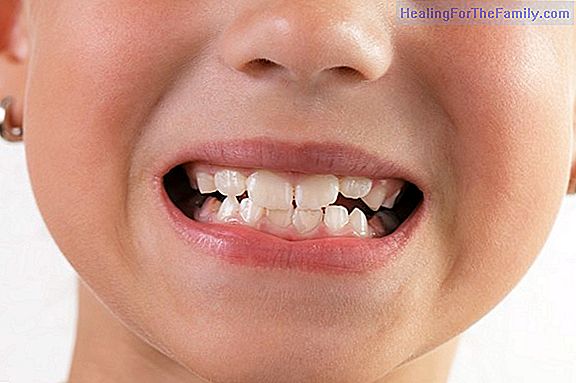When the baby does not want to eat
Sometimes, food is one of the biggest concerns that parents find during parenting. But how much is true in the recurring phrases 'this child eats little' or 'is it wrong to eat'? It happens to all of us that a few days, and even seasons, we have more or less hunger. What is completely understandable
Sometimes, food is one of the biggest concerns that parents find during parenting. But how much is true in the recurring phrases 'this child eats little' or 'is it wrong to eat'?
It happens to all of us that a few days, and even seasons, we have more or less hunger. What is completely understandable in adults, is absolutely reprehensible for babies and children. The important thing is not so much the amount that the little one eats, but his weight depending on his age. Experts recommend going to the doctor when a child loses weight or fattening clearly less than normal.
The crisis of breastfeeding in the newborn

In the case of infants, each baby, like every person, is a world and its behavior must always be assessed globally. Although it is obvious, we must also remember that babies should not be compared, since each one grows at their own pace; and, of course, we must take into account the genetic legacy of the parents in terms of size and their aptitude for food.
Throughout the evolutionary rhythm of the child, it is very common that there are moments of inappetence towards breast milk. It is due to the so-called 'lactation crisis' or 'lactation strike', which is related to their rate of growth. They are around 3 months and experts recommend calm, patience and perseverance so that eating habits return to normal. Encouraging skin with skin, trying to nurse at night when more relaxed and seek help in breastfeeding groups are some practical recommendations to achieve it.
Other important milestones to consider in the development of a baby can be the incorporation into the mother's work, the exit of the teeth or that towards the first year of life, decreases its growth rate and, therefore, is It is normal for the amount of food you eat to be reduced.
How to give new tastes to babies
The World Health Organization (WHO) recommends that the baby be exclusively breastfed up to 6 months of age. In fact, until the baby is one year old, solid nutrition is considered complementary to breast milk. Although it is true, that from 6 months old children need to incorporate iron in their diet, so you have to go offering them other foods rich in this element.
It is necessary to remember that the spoon and the new textures and flavors are strange for the little ones, who have to adapt little by little, which will depend on their maturity and curiosity. So it is not necessary to be totally orthodox and inflexible with the timely introduction of purees and fruit porridges.
Another option that is totally valid, and that is taking more and more prominence, to begin to taste new foods, is the so-called baby-led-weaning or complementary food 'on demand', which consists of introducing solid foods in the diet, allowing that the baby feeds on its own without using spoons or purées. In this way, the baby sits with the rest of the family at the time of the meal and joins the others when it is ready, using first their hands to eat and then the cutlery.
Once again, patience and respect towards our little one will make us feel more relaxed and that we evaluate globally their temporary circumstances in relation to their lack of appetite. It is not advisable to oblige to eat, because like any living being, the child is the only one who knows what he needs to eat.
Susana Torres.Collaborator of Guiainfantil.com and lactation consultant.












